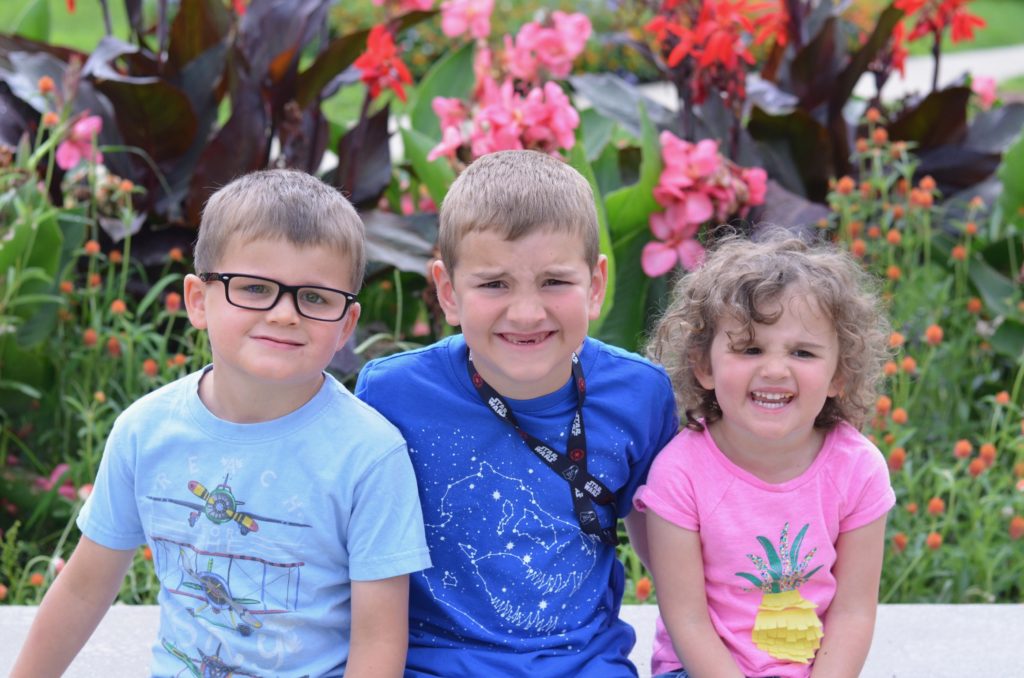One of the tenets of leadership should be constant improvement as people tend to follow those who are always getting better. Thus, every situation has potential to teach you lessons that apply to leading other human beings if you are willing to learn from them. This is especially true in parenting. Here are examples of lessons I have recently learned from parenting, and how I will implement them into my own leadership. I am sharing them here to give you an example of how I do this in hopes that you begin to glean lessons from the situations you experience.
The first scenario I’ll share is applicable to all three of our kids, but I’ll share it from Will’s perspective because he is the “Energizer bunny.” “Dad, after dinner can we play ____ (insert golf, baseball, hockey, or some other high energy activity here)?” is a common question he asks. This summer, this has meant that I have had to choose to find energy when being jet-lagged, change clothes to something I can sweat in when it was hot outside, and often be okay with multiple showers per day —thank goodness I don’t have to do my hair! While this is hardly revolutionary —kids have wanted their parents’ time and attention since the dawn of time —the point is applicable to leadership. I don’t know about you, but I often have so many tasks to get completed in a certain day that I don’t feel like I have any extra time to spend with others, especially others who haven’t scheduled an appointment. So this summer, when someone has been standing at my door wanting “just a few minutes,” I have intentionally chosen to say yes more frequently. Often, people just need a few minutes and this validates their worth on the team.
The second scenario perhaps only applies to parenting as words do not mean that much to adults —I hope you read that statement with the sarcasm that it is intended! Our middle child, Ben, is changing a lot over the last few months. Baseball, Kindergarten, and other new abilities that he is discovering—it is all exciting. As with all change, however, it also comes with moments of frustration, difficulty, and even setbacks. There have been swings and misses, and even creative attempts to come home from school via suspect “stomach pains,” all because school was getting boring, or as he put it, “because he missed Mommy” (probably both true and a pretty good sales tactic, but I digress). There have also been moments where he has demonstrated that he is “getting it,” like when he was at Will’s birthday party and he never complained about not getting anything himself, and instead was genuinely happy for his brother’s happiness as he opened gifts from all his friends. Not only were Sarah and I humbled, even challenged by this demonstration of loving others, we were proud. So we told Ben this in front of his two siblings that night at dinner. We did this by naming exactly what he did, thanking him for it, and then added our emotion to it. “I am proud of you Ben.” The question I asked myself that night as I put Ben to bed was, when was the last time you caught someone doing something you were impressed by at Hoffer Plastics? Did you tell them you were proud of them? Did you name the behavior and share the insight? In a society constantly growing more at odds with one another, affirmation is becoming a rare commodity. To be someone worth following, you need to be someone that is loving. So I challenge you to ask these questions of yourself.
Finally, the lesson I have learned with our independently minded three-year-old named Sadie is to always ask questions. The question that I often ask Sadie —and not one I would recommend leaders to ask at the office! —is whether I can hug her? To my unbiased opinion, she is the cutest three year old on the planet. She is also my only little girl. I’ll blink twice and she will be 13, and probably will hate the rules I have about social media and whatever device is cool in ten years. So I have to milk this for all it’s worth right now! What I have learned is that asking her for permission shifts the power to her. Naturally, she says no to me a LOT —and I always encourage her to keep saying no to boys for the next three decades. But then I ask the follow up question, “how about in 30 minutes.” To Sadie, 30 minutes might as well be 2023 so she always says yes, but this allows Sadie to “hug” on her time and only when she is ready. The point here to leaders is that authority can sometimes be used to get what you want, but this isn’t the sort of thing people worth following do. Rather, they ask questions and solicit buy-in. After all, a big hug 30 minutes later is preferable to a forced hug now.
Lessons are all all around us if we just pay attention. So pay attention and learn this week.

